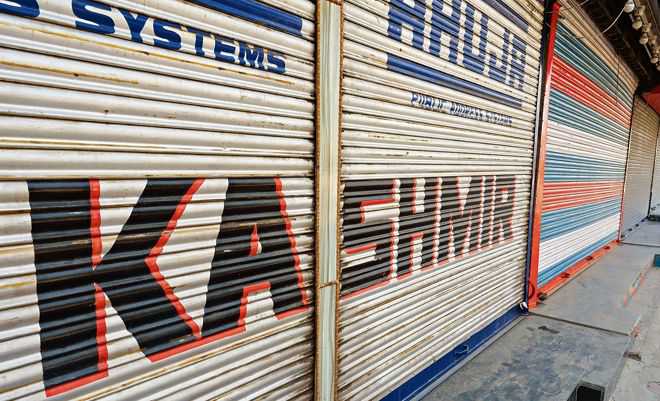
Vivek Katju
Ex-secretary, ministry of external affairs
THE intense media attention in India and Pakistan over the presence, approaches and statements of PM Narendra Modi and his Pakistani counterpart Imran Khan at the high-level segment of the recent session of the United Nations General Assembly (UNGA) in New York has receded. Consequently, for the time being, the decibel level surrounding bilateral ties has also come down, providing opportunities for sober assessments and prognosis. This is never an easy task for policy-makers and analysts on account of the relationship’s historical baggage and inherent emotion.
Pakistan’s aggressive, if not irrational reaction to the constitutional changes in J&K on August 5 has ensured that bilateral relations have entered a new and particularly difficult phase. This period is marked by aggressive Pakistani attempts to divert international attention from its policy of using terrorist proxies in J&K to Indian ‘irresponsibility’ which could result in violent confrontation between two nuclear- armed countries. Another feature of this phase consists of Pakistan’s desire to convince the international community that India is ruthlessly crushing a ‘freedom struggle’ and in the process brutally violating human rights. To make the global community receptive to its messages, Pakistan has ensured that terrorist groups based on its territory have not undertaken any major attacks in the Kashmir valley or elsewhere, though it is infiltrating terrorists into J&K. Pakistan hopes that the major powers who naturally do not want an India-Pakistan armed conflict would not only condemn Indian ‘repression’, but also ultimately compel India to accept mediation on J&K.
Pakistan has not achieved any of its post-August 5 objectives. Pakistani leaders have accepted as much when they expressed their disappointment at the international community’s indifference to the Kashmir situation. The UN Security Council, UNGA and the UN Human Rights Council have remained virtually unmoved by the Pakistani push. Some countries, including the US, have called for the removal of movement and communication restrictions in J&K and the release of political leaders and workers. While these demands may grow, they have not developed any real international traction as yet. This is largely because of the absence of large-scale demonstrations or damage to life and property in the Valley since August 5. It is, of course, desirable that the situation should return to normal in J&K in the shortest possible time. Naturally, the security situation will play a major role in determining the timing of the government’s moves.
Pakistan has been particularly distressed by the largely continuing indifference of the Islamic ummah to its all-out diplomatic campaign on J&K. Only Turkey and Malaysia were critical of India in their UNGA statements. The Arab peninsular states, including Saudi Arabia, have steered clear of the issue. It has, though, been difficult for them to do so because all have close ties with Pakistan and Saudi Arabia, and the UAE has significant connections with the Pakistani army. These two countries engaged India and Pakistan after the Pulwama terror attack. Such engagements are undertaken with the aim of defusing tensions.
After August 5, the Saudi minister of state for foreign affairs and the UAE foreign minister jointly visited Pakistan to assuage its hurt over their not going along with it on the J&K developments. Imran Khan visited Saudi Arabia on his way to New York for the UNGA. He would have undoubtedly raised the Kashmir situation with the Saudi leadership in a big way. Now, Modi is scheduled to visit Saudi Arabia. While the primary focus of his discussions will on bilateral ties, the issue of India-Pakistan tensions would undoubtedly come up.
Pakistan has pushed itself into a corner in the present phase of bilateral relations. It took very aggressive steps against India immediately after August 5. It asked the Indian High Commissioner in Islamabad to leave and stopped trade. Later, Pakistan gratuitously insulted India by denying President Ram Nath Kovind and PM Modi the use of its airspace on their way to the West. Further, it laid down the condition that India would have to reverse its August 5 steps before Pakistan would agree to the resumption of talks. The decisions were directed at the major powers to get them more actively engaged with India-Pakistan relations.
As the Pakistani civilian leadership and the generals watch their moves fail, they confront two basic questions: should they pursue their present policy of holding back their terrorist groups in the hope that continued Indian restrictions on communications and movement in J&K would lead to the major powers and liberal sections of international opinion putting India under greater scrutiny and possibly pressure? Or should they unleash the terrorist groups to undertake terrorist attacks in J&K and elsewhere in India in expectation that a kinetic Indian response will precipitate a crisis and immediately draw in the major powers not only to defuse the crisis but hopefully compel India to accept mediation on J&K? It is difficult to predict which path Pakistan will take in the near future but there is no doubt that the default preference of the Pakistani army has been to pursue the path of violence and terror against India. The chances are that Pakistan would seriously consider to undertake terror strikes in J&K. No doubt India’s security managers would be aware of this possibility.
Where does the Kartarpur corridor’s inauguration, scheduled for next month, figure in this bleak bilateral landscape? It is unlikely to positively impact bilateral ties because for Pakistan, the Kartarpur initiative is a gesture not to India but to the Sikh community in India and outside. Pakistan has for long desired to attract Indian Sikhs. It has not succeeded and never will, but it will never stop trying.
